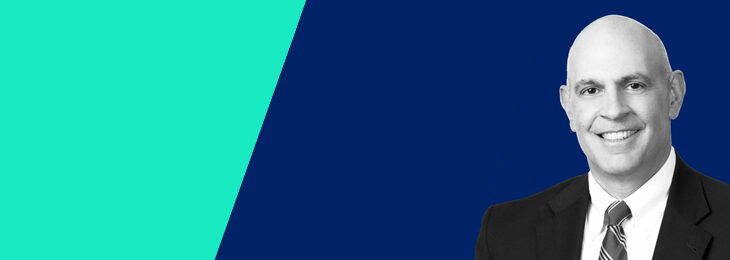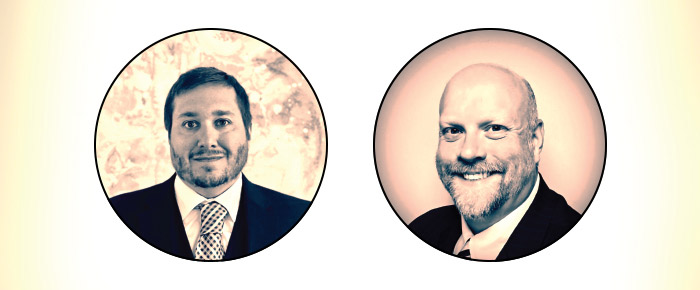
As a result of the COVID-19 pandemic, 2020 was marked by many quarantining at home worldwide to combat the spread of the virus. Much of the anti-money laundering (AML) field had to adapt to an almost entirely digital environment―including ACAMS. Following the success of ACAMS24+, ACAMS’ next foray into digital conferences was the ACAMS 19th Annual AML and Anti-Financial Crime Conference—Las Vegas. And the Vegas conference is not complete without recognizing and awarding members who have contributed immensely to the anti-money laundering/counter-terrorist financing (AML/CTF) field.
This year, ACAMS honored nine outstanding individuals and one exceptional chapter. ACAMS awarded ACAMS AML Professional of the Year to Gigi Pantelidis; ACAMS Today Article of the Year to William “Bill” Cloninger, Pawneet Abramowski, Pamela Calaquian, Alek El-Kamhawy, William Casey King, Zachary Robock and William Voorhees; the ACAMS Public-Private Partnership Award to Don Fort; and ACAMS Chapter of the Year to the ACAMS Central Ohio Chapter.
ACAMS Today had the opportunity to interview the award winners and below are their responses. Congratulations again to all of 2020’s ACAMS award winners!
ACAMS AML Professional of the Year
Gigi Pantelidis, CAMS
Gigi Pantelidis has over 25 years of internal audit experience that spans across four large financial institutions (FIs). Currently, she is audit director of financial crimes at Wells Fargo. In this role, she is responsible for the strategic direction, scoping and execution of Bank Secrecy Act/anti-money laundering (BSA/AML), sanctions, and anti-bribery and corruption audit programs for independent risk management within the second line of defense and for the wealth and investment management portfolio. Pantelidis is also responsible for reporting, regulatory interactions, methodology, training and the financial crimes data analytics team. Recently, she was appointed co-chair of Internal Audit’s Diversity and Inclusion Council.
ACAMS Today: Congratulations on winning AML Professional of the Year! What inspired you to obtain a career in financial crime prevention?
Gigi Pantelidis: I am really excited to be this year’s AML Professional of the Year! Twelve years ago, when I was auditing the bank’s various broker-dealers, I represented audit on the Broker-Dealer AML Oversight Committee, a governance body that discussed/decisioned AML matters. I started to take a special interest in the AML space because of the discussions I had joined. A mentor of mine suggested I make AML my niche and I went on to create a standardized audit program for all independent reviews of the various broker-dealer AML programs. A few years later when a leadership role for an AML audit team was created, I knew it was the right move for me and I have been auditing financial crimes ever since.
AT: Having had 25 years of experience in internal audit, how has the field evolved?
GP: When I started my career in audit in 1995, we were using general ledger accounting paper to document our testing. It was a skill to learn how to construct the workpaper and put all the supporting documents together! In the past, our audit testing approach forced us to analyze hard documentation in order to surmise results.
Now, we can test entire populations, do audits of entire processes as well as reduce the number of audits while producing more valuable results. Innovation allows for continuous auditing of recurring topics. This frees up resources to either focus on other areas or look deeper into areas previously tested. In the financial crime arena, we can review full populations to ensure adherence to regulatory requirements rather than just review a sample; this is huge progress! Automated processes reduce highly manual tasks within the audit and allow the team to focus on risk within the business and on areas that require significant levels of auditor judgment.
AT: What does your role volunteering for the New York Chapter of the Institute of Internal Auditors (IIA) entail?
GP: During a career chat with one of my most influential mentors, she suggested I start to give back to the IIA, sharing my passion for internal audit with others. I reached out to the IIA New York Chapter president, who asked me to help plan the first financial services- specific IIA conference. As the co-chair of the event, I worked with a team to develop relevant topics and bring in amazing speakers from the network I had developed over my career; the event was going to have senior audit professionals as well as risk and compliance professionals. Due to the pandemic, our April 2020 conference was cancelled. However, just a few weeks ago we resumed our planning for a virtual version of that conference in February 2021.
AT: You have been a panelist for several IIA conferences, including the Women in Internal Audit Leadership Forum. Do you have any wisdom you could share for women in internal audit as well as women in financial crime prevention?
GP: For women in internal audit, I can say that I have seen us make an enormous amount of progress in 25 years. We were always well-represented in the profession, but when I started my career very few women were audit directors and chief audit executives. My advice is to look for a mentor (a mentor in audit or in your area of focus, such as a compliance or financial crime professional), ask questions and get advice on what they did to get there. My favorite advice has always been, “Be an expert in your area of audit; the more you understand what you are evaluating the clearer your value becomes!”
ACAMS Today Article of the Year
William “Bill” Cloninger, CAMS, Pawneet Abramowski, Pamela Calaquian, Alek El-Kamhawy, William Casey King, Zachary Robock and William Voorhees
The award-winning article, “Virtual Currency Investigations: A Primer for BSA and Compliance Professionals” came out of a symposium organized and conducted by the ACAMS Northern Ohio Chapter and Case Western University’s Financial Integrity Institute. In response to an attendee’s question, the speaker cohort collaborated to provide guidance on virtual currency investigations. William “Bill” Cloninger, CAMS, answered questions on behalf of the article’s team of collaborators.
AT: Congratulations on winning the ACAMS Today Article of the Year Award! Could you please share how this article collaboration came to be for our readers?
William “Bill” Cloninger: Special thanks to ACAMS and the ACAMS Today editorial staff. This award is an incredible honor.
In the fall of 2018, the ACAMS Northern Ohio Chapter and Case Western Reserve University’s Financial Integrity Institute held a full day symposium on cryptocurrency, attended by over 100 financial crime professionals. An outstanding group of speakers were brought together to discuss various aspects of cryptocurrency. The symposium ended with a Q&A session with all the speakers on the dais. One of the attendees stated: “This symposium was fantastic, one of the best I’ve ever attended. What I really want is if you could tell me how to investigate an AML case that involves cryptocurrency? There seems to be a lot of information published on crypto, but nothing on how to investigate it.” That evening, over dinner, this question was brought up again. Collectively, the speakers thought this idea had merit and as a group there was willingness to try to fill this informational gap. Over the next month, an initial draft was developed. It went through six or seven iterations before submission to ACAMS Today for possible publication. The article was published in March 2019.
AT: How has the landscape changed for AML investigations in virtual currency since the publication of your article and do you have any new guidance on this topic?
WBC: The cryptocurrency/virtual currency field is very dynamic and constantly changing. Three months after the publication of our article in ACAMS Today, the Financial Crimes Enforcement Network (FinCEN) published the “Advisory on Illicit Activity Involving Convertible Virtual Currency” (FIN-2019-A003). Virtual currency is evolving from a speculative investment to a more commonly used means of value exchange in niche market segments, most notably online gambling. It is speculated that virtual currency is being used to facilitate the financing of terrorist activities. This is a scary prospect.
A few of our group have been in discussions on writing an update to our original article within the next six months or so.
AT: What topics do you think would be of interest to the ACAMS Today readership?
WBC: As we discovered with our cryptocurrency article, there is a strong desire for “how to” articles targeted at investigators. It would be much appreciated if ACAMS Today would expand its offerings in this segment.
ACAMS Public-Private Partnership Award
Don Fort
John D. (Don) Fort is the director of investigations at Kostelanetz & Fink (K&F) and the immediate past chief of the IRS’s Criminal Investigation (IRS-CI) Division. Having spent nearly 30 years in law enforcement for the federal government, Fort has deep expertise in financial crime and has developed an extensive network of connections both within the government and in private industry. At K&F, he now assists clients facing governmental investigations involving all manner of alleged financial and economic crimes, including tax disputes or suspected tax crimes, money laundering and Bank Secrecy Act violations. He is also involved in conducting internal investigations, advising clients on compliance regimes, serving as an expert witness and voluntary or court-mandated monitorships.
Fort’s time in law enforcement included overseeing some of the most significant financial crime investigations involving tax evasion, sanctions evasion, money laundering, bribery, international corruption, bank malfeasance, cyber and cryptocurrency crimes, and terrorist financing.
AT: Congratulations on winning the ACAMS Today Public-Private Partnership Award! In your experience, what does it take to build and maintain a successful public-private partnership?
Don Fort: It takes perseverance and personal commitment on both sides of the equation. For both the public and the private sector, building and maintaining these relationships is typically not a specific element of their job responsibilities, yet taking that extra effort to engage on both sides is a force multiplier. In my almost 30 years of public service, I have seen that the relationships that are built at the local and/or regional level are the most powerful. Witnessing the level of engagement between public and private sector partners, when it is their own community at stake and when many of them have lived there for their entire life, typically leads to success on both sides.
AT: How did you initially become involved with ACAMS?
DF: I have always known about ACAMS, but it was not until about 10 years ago―when I joined the Senior Executive Service and had an opportunity to travel the country and engage with internal and external stakeholders in my territories―that I fully grasped what ACAMS was all about and the value that being a member and participating in the various local and national events could mean to me personally but also as a leader of a law enforcement agency. As I attended local and national events, I was fortunate to meet many ACAMS leaders and vastly expand my network of contacts in both the private and public sector.
AT: How has the financial crime prevention industry changed since you began your career?
DF: This is a point I have pondered many times over the past year. Having started working for IRS-CI in 1991, I was at the cusp of computers and major technological advances. Computers existed at the time, but they were not mainstream and readily available in the government. In the past 30 years, we have gone from a predominantly paper-based society to one that is rapidly hurdling to being almost completely digital. The two biggest changes in financial crime prevention are the rapid and nonstop advances in technology and the speed and ease at which money moves. Gone are the days when individuals had to hop on a plane to travel to a foreign country to open a foreign bank account; with the invention of digital and cryptocurrencies, funds can be exchanged in the blink of an eye without ever leaving the comfort of your home. Of course, with these advances in technology come challenges within the financial crime prevention industry in preventing the illicit flow of funds. As criminals have evolved, so too has the industry and law enforcement. Deploying state-of-the-art data analytic tools, enhancing private-public partnerships and employing good old fashioned “follow the money” tactics have allowed the financial crime prevention industry to deal with these changes effectively.
AT: Having recently retired from the IRS, what part of the job are you going to miss the most?
DF: I will miss traveling around the country and talking to the agents and employees of IRS-CI. As the finest financial investigators in the world, they are a rare breed and their persistence and fortitude in uncovering and proving financial crimes of all types is second to none. The best part of my job was interacting with IRS-CI employees daily and talking publicly about the amazing work that was routinely accomplished. I will also miss the relationships that I built within the government and outside, but I hope to build and expand on those in my current position.
ACAMS Chapter of the Year
Pittsburgh Chapter
The ACAMS Pittsburgh Chapter was founded in September 2017. The chapter’s mission remains consistent with the international ACAMS mission, which is “to advance the professional knowledge, skills and experience of those dedicated to the prevention, detection and reporting of international money laundering.” To achieve this mission, the chapter’s board of directors is comprised of FI professionals, public and private sector industry experts and law enforcement officials who have years of experience in the AML/CTF fields. The chapter aims to provide the region, encompassing western Pennsylvania, West Virginia and southeastern Ohio, a platform for career development and professional networking. Pittsburgh Chapter co-chairs Bryan Chapman, CAMS, and John K. Waterstram, CAMS, CFCS answered the following questions on behalf of the chapter.
AT: First of all, congratulations on winning the Chapter of the Year Award! How has your chapter adapted to the state of the world in 2020?
Bryan Chapman and John K. Waterstram: Thank you! This award is truly an honor and we are so excited to accept it on behalf of all our members.
In the face of an unparalleled landscape, we have attempted to be more proactive in our approach to virtual events, taking the opportunity to engage presenters that we would not have been able to host in person. We also wanted to focus on increased communication, including email and social media, to help stay engaged with our board and members. In addition, we collaborated with other chapters on best practices.
AT: Do you have any tips for hosting an engaging virtual event?
BC and JKW: A great virtual event requires intentional pre-event planning. Search out presenters who bring new and diverse experiences to your audience, as they will engage listeners and precipitate interaction. Make efforts to promote the event through email and social media. These are great opportunities to introduce your chapter to others in the field and others in your region who may want to join. Look for feedback from your audience to see what is working and what they want to hear about.
AT: Considering that you have members in both the public and private sectors, how do you develop events with these various professional backgrounds in mind?
BC and JKW: The Pittsburgh Chapter, from its inception, has been focused on being a regional resource for the public, private and academic sectors. We, specifically, aim to have topics and speakers that would appeal to all three, and try to include representatives from each when building speaker panels.
AT: What do you consider to be the benefits of joining an ACAMS chapter?
BC and JKW: Joining a local chapter allows people to meet and network with other professionals in their region. It also provides a fantastic ongoing opportunity for the highest quality in continuing education. Local ACAMS chapters provide the opportunity to take part in charitable and recreational events with others in the field. In addition, this is another avenue to create long lasting partnerships between the private and public sector.
Final Thoughts From the Winners
AT: What advice do you have for financial crime prevention professionals in 2021?
GP: Continue to embrace technology and new ways of doing things! Let’s continue to hire a variety of talent, who bring in different experiences and perspectives. The world has changed dramatically in 2020 due to the pandemic. As an assurance professional—know your business, know your customers to a higher degree of detail and leverage technology to identify the higher-risk areas of focus. Let’s continue to safeguard our shareholders and our banking industry from the bad guys!
WBC: Our workplace in incredibly dynamic. Financial crime is consistently evolving. The nature of our jobs is becoming more technically demanding every month. Our skills need to change to keep up. Doing the “same-old, same-old” is not adequate. Take every opportunity to gain new skills to better equip yourself for the future changes coming in our field. Be future ready!
DF: With the pandemic still at the forefront of our minds and with travel very uncertain in 2021, I have two items of advice for financial crime prevention professionals:
- Expand your network. With so many face-to-face interactions being limited, now is the time to expand your private-public partnership. If you are a banker or AML professional, set a goal to join or attend a local ACAMS event and meet new professional contacts that can help you develop your professional skills. While they may be virtual events, this commitment cannot stop. For too many years, law enforcement professionals or those working otherwise in the public sector have siloed themselves and believed they can effectively solve financial crimes on their own. Recent experience has shown that the recipe for success in combating financial crimes is the cooperation of the public sector (many law enforcement agencies and the U.S. Justice Department), and private industry (both banking and AML as well as other private sector firms that assist the government) working together with the common goal of routing out financial crimes.
- Expand your knowledge of digital and alternative currencies. I believe the use of digital and cryptocurrencies will continue to explode in the U.S. and around the world. With different treatment in different parts of the world and hundreds of different competing products, this innovation is likely here to stay. As financial crime prevention professionals, it is your responsibility to stay up on the latest technology. While cryptocurrencies are largely outside of traditional banking channels, individuals still need to convert their various assets to fiat currency, which includes traditional banks and FIs.
BC and JKW: First and foremost, we will hopefully be able to safely reconnect with friends and colleagues in person! Professionally, it will be important to focus on COVID-19-related frauds and the laundering of those funds, as well as emerging technologies and the FinCEN Files leaks.
Interviewed by: Stephanie Trejos, CAMS, editor, ACAMS, Miami, FL, USA, editor@acams.org












